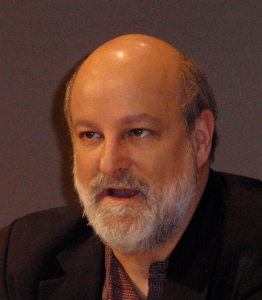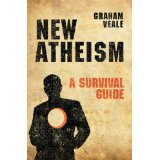Will you run your race so that you finish well? Let’s talk about it on Deeper Waters.
I believe it was just a couple of days ago that my wife asked me to pray for Gretchen Passantino Coburn, someone highly instrumental with the apologetics ministry of Answers in Action. I was told she was going under for an operation. Of course we prayed, but in the back of my mind I’m thinking “Gretchen is really tough. She’ll be out of this in no time and bouncing right back.”
As an apologist, I make it a point to try to not be wrong.
And this time, I really really hate that I was wrong.
When we got home yesterday, we found out the news. Gretchen had passed away from a massive heart attack. It left a dark cloud hanging over our household for the rest of the evening and that kept going. I don’t think either one of us slept the best last night.
Now I’m not going to be one who says I knew Gretchen very well. I didn’t. Now I wish I had known her well, but alas, I did not. Still, when we did talk, it was always a good and friendly conversation. When I posted something on the Deeper Waters Facebook page, she would sometimes comment, and I always delighted in her comments.
I also liked about Gretchen that she was someone who was real. One memory I have of her that could seem awkward is when her husband came home from a long trip. He told her that he was back from his trip to which she said “See you in the bedroom!” Some of you could think I’m sharing something private. I’m not. This was posted right on Facebook. Everyone could get to see it, but that was something that made it special too. This was a couple with a great love for one another and they weren’t afraid to show it.
It also brought out what I just said. Gretchen was real. She was an apologist who was not afraid to show her fun-loving and joking side. In a private conversation, she even made a joke to me once that my Aspie self had a hard time responding to. She apologized when she found out, but I told her there was no need to. I appreciated her humor. I really liked that about her.
I found Gretchen’s articles that she wrote to be quite helpful at times and fair, even if I didn’t always agree. Gretchen never acted like she was better than anyone else because of her established position in the apologetics world and treated people well who were just starting their journey. That includes people like myself. I’m sure I’m not the only one.
I have a habit every night of reading a portion of the Psalms and thinking about it as I try to go to sleep. I normally don’t place much stock in special events like this such as just opening the Bible and finding just the right message for you. Yet as I don’t think that commonly happens, I’m wondering if last night was an exception. I go through the Psalms in order and last night, I was reading Psalm 84 and the next section was verses 5-7.
5: Blessed are those whose strength is in you,
in whose heart are the highways to Zion.
6 As they go through the Valley of Baca
they make it a place of springs;
the early rain also covers it with pools.
7 They go from strength to strength;
each one appears before God in Zion.
I couldn’t help but think this was a fitting tribute to Gretchen. There is no doubt that Gretchen found her strength in Jesus. Anyone who looked at her knew her heart was on the path to the place of God. What about the valley of Baca? That refers to a place of pain and sorrow. Now I’m not one who thinks this whole world is awful, but it’s not as it should be. It is a place of pain for many of us.
What did Gretchen do? She made that valley less painful for the rest of us. She was the one who made it a place of springs, mainly by sharing her knowledge of Christ and letting the rest of us know that we could rightly place our trust in Jesus. She helped answer the despair of many hearts who wanted to know if Jesus was real or if the whole thing was just a fiction.
And how does it end? Gretchen is not in her resurrected body of course, but I do say she has appeared before her God. One day she will be reunited with a glorified body and we will see Gretchen as she really is, and I do not doubt that it will be far more beautiful than anything we ever saw here on Earth, which should leave us all in wonder. It will be because she will be the best reflection of God that she can possibly be.
Gretchen ran the race well. As I thought about her last night, my honest prayer was to give me the desire and enable me to do the same. It has been said that when each of us was born, we cried while the world rejoiced. We should all live our lives so that when we die, the world will cry and we will rejoice.
Right now, there is reason to rejoice for Gretchen, but we will have the tears on this side. We are not sorry for her. She is not at a loss right now. We are sorry for ourselves who are suffering the loss. A great warrior for Christ has passed on. Gretchen can never be truly replaced of course, but she would be honored to know many are rising up to fill in the spot that she left behind.
Earlier this year also, I had the joy of getting to interview Gretchen on my podcast. That interview can be heard here. Gretchen chose to talk about the beauty of life which meant dealing with the question of abortion, dealing with suffering in the intermediate stage of life. Finally, we talked about end of life issues with questions such as euthanasia. Now Gretchen has seen all the beauty of life and is now in the presence of true beauty, a beauty she could never have imagined.
God bless you Gretchen as He already has. Thank you for your friendship and I look forward to seeing you again someday.
In Christ,
Nick Peters



